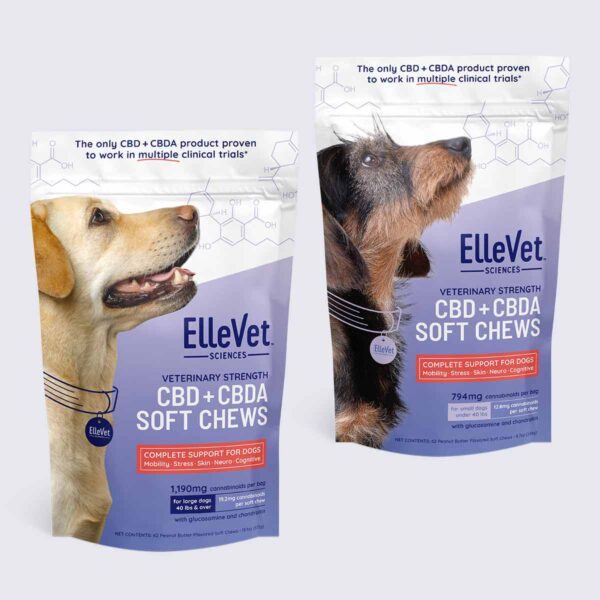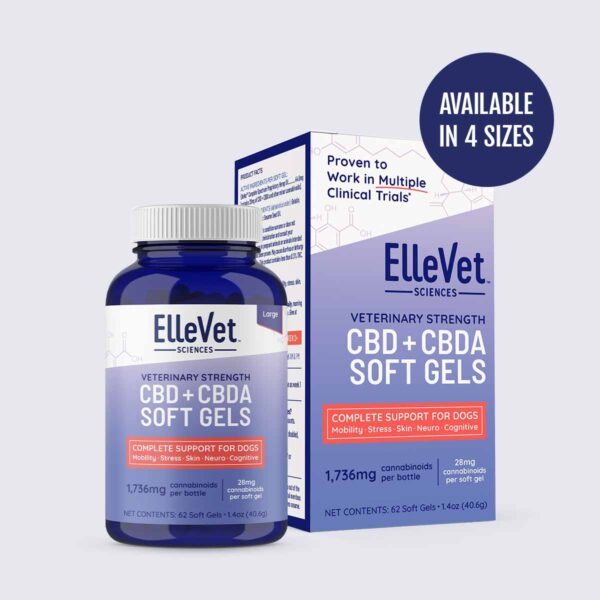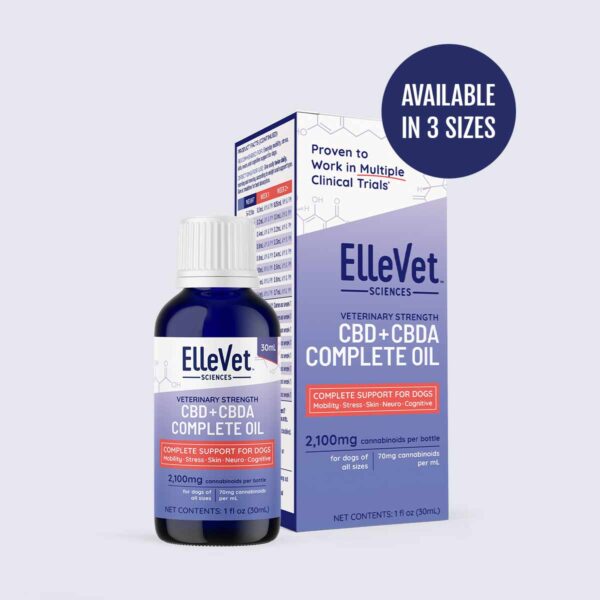If your dog tends to hang around the refrigerator, especially when someone opens it, you’ve likely broken off a little piece of cheese for them from time to time. Deliciousness aside, is cheese safe for dogs?
Your dog can enjoy plenty of human foods in moderation, and your dog is likely to beg to try most of them. Before you give your dog a bite of anything that isn’t dog food, you need to know that food is suitable for your pet.
Some cheeses are safer than others, and you should use caution when giving your dog a cheesy snack. Let’s look at the benefits and safety of cheese for dogs.
What Are the Health Benefits of Cheese for Dogs?
The health benefits of cheese relating to dogs (and humans) are not extensive, but you can incorporate cheese into balanced human and pet diets. Cheese contains proteins, essential fats, vitamins A, B, and calcium. These nutrients, vitamins, and minerals are valuable to humans and animals.
While vitamins and minerals are necessary for your dog, cheese isn’t the best source. High-quality dog food should be nutritionally complete. Two or three meals a day, measured in amounts appropriate to your dog’s weight, should fulfill all of their dietary requirements. Cheese is just a bonus.

Is It Safe To Give Dogs Cheese?
While cheese has been found generally safe for dogs, the adage “everything is good in moderation” rings true here. Like humans, dogs are not immune to potential health risks that come with too much cheese.
Cheese, although undeniably tasty, is very high in fat and can lead to weight gain or obesity in dogs. As we know, weight gain and obesity can lead to several unwanted health problems.
Too much cheese can also lead to more concerning diseases like pancreatitis, a painful inflammatory condition that occurs when the body’s enzymes process excess dietary fats and begin to attack the pancreas. While sometimes more manageable in humans, pancreatitis can be fatal for dogs.
Don’t panic. If your dog nabs a few slices of cheese from your charcuterie board, they’ll probably be fine. Pancreatitis won’t likely occur if your dog eats a few pieces of cheese once. A condition like pancreatitis is usually the result of frequent excessive fat intake.
To be safe, also be sure to check if the cheese you plan to give your dog has any additives that could be harmful. Cream cheese and specialty cheeses can include alliums, like onions, garlic, and chives.
Alliums can be toxic to dogs, even in small amounts. If your dog ingests alliums, call your vet immediately. Your vet may suggest a “watch and wait” approach, where you’ll bring your dog to an emergency clinic if the symptoms become severe.
Can Dogs Be Lactose Intolerant?
Some dogs, like humans, can be lactose intolerant, meaning they will not digest cheese or other dairy products correctly. You may have to ask your veterinarian about this, but if your dog has never shown signs of being lactose intolerant, you’re probably good to go!
If you want to be cautious in your approach, only allow your dog to have small amounts of cheese that are naturally lower in lactose. Harder, aged cheeses tend to have less lactose than softer cheeses. These harder cheeses, like aged parmesan, are usually safe for lactose intolerant people and dogs.
Give your dog a small amount of cheese and wait 24 hours. If your dog doesn’t show any symptoms of digestive upset, like diarrhea or gas, your dog probably isn’t lactose intolerant.
If your dog displays any symptoms, it’s probably better to keep cheese off the menu for the long haul, then make sure everyone in your household knows that cheese isn’t safe for your dog.
How Much Cheese Can My Dog Have?
To avoid adverse side effects, try limiting your dog’s cheese intake. You may also choose a lower-fat cheese, like mozzarella or cottage cheese. It’s easy to find low-fat or fat-free mozzarella and cottage cheese at the grocery store. Cottage cheese also contains much less sodium than other cheeses, making it an overall healthier choice.
It’s important to remember that your dog enjoys human food snacks, but they’re in no way necessary for your dog’s health. At least 90% of your dog’s caloric intake should come from their well-balanced food. The other 10% can come from snacks and treats.
When To Give Your Dog Cheese
One of our team members recalls that when they were growing up, if their family dog refused to take her medication or was being a fussy eater, “wrap it in a piece of cheese” seemed to be the default response.
Maybe this is an unfamiliar scenario to some, but it proves to be a common practice among many dog owners and can be one of the most practical applications for cheese.
Dogs who are picky or don’t like the taste of their essential medications can often be convinced when a piece of cheese is involved. Your dog’s sensitive nose will detect the aroma of the fats and protein in the cheese. You can even try hiding your dog’s CBD soft gel in a spoonful of cottage cheese and watch how easily it disappears.
Besides using it to hide the taste and odor of medications, cheese is a wildly popular choice for training. Because most dogs enjoy cheese so much, professional dog trainers and owners alike have used it as a motivational tool.
If you notice your dog has developed an infatuation with those little slices, capitalize on the opportunity and use it while training! This can be especially effective for young puppies or stubborn dogs.
It doesn’t have to be all training-based either. If your dog loves cheese treats, use it as a behavioral reward. Using the same basic training logic, if your dog does something good or what is asked of them, receiving a reward of the coveted, solidified dairy square will encourage your dog to repeat the behavior.
Keeping Your Dog Healthy
Special treats are great for training rewards and can serve as motivators for your dog. Your pup may happily wait patiently by the door for you to get their leash. They’ll sit and stay if they know it means something special awaits them.
Just don’t let special treats become a staple of your dog’s diet. Well-balanced, holistic dog food should be the bulk of your dog’s daily intake. Your dog will get all the nutrients, vitamins, and minerals they need from their food bowl.
ElleVet Hemp CBD + CBDA Oil for Dogs also works to support your dog’s wellness holistically. CBD + CBDA is proven to work for joint support, provide neurological support, support healthy digestive functioning, support the immune system, and maintain healthy stress levels.
Manage your dog’s wellness on all fronts with occasional treats, a well-balanced diet, and ElleVet.
Sources:
Pancreatitis in Dogs – Symptoms, Causes & Treatment | American Kennel Club
Can Dogs Drink Milk? Is Milk Bad for Dogs? | American Kennel Club
The ElleVet Team
844-673-7287
[email protected]
-
 ElleVet Hemp CBD + CBDA Soft Chews$89.00 – $99.00 — or subscribe and save 15%
ElleVet Hemp CBD + CBDA Soft Chews$89.00 – $99.00 — or subscribe and save 15% -
 ElleVet Hemp CBD + CBDA Soft Gels$49.00 – $159.00 — or subscribe and save 15%
ElleVet Hemp CBD + CBDA Soft Gels$49.00 – $159.00 — or subscribe and save 15% -
 ElleVet Hemp CBD + CBDA Oil For Dogs$79.00 – $249.00 — or subscribe and save 15%
ElleVet Hemp CBD + CBDA Oil For Dogs$79.00 – $249.00 — or subscribe and save 15%









